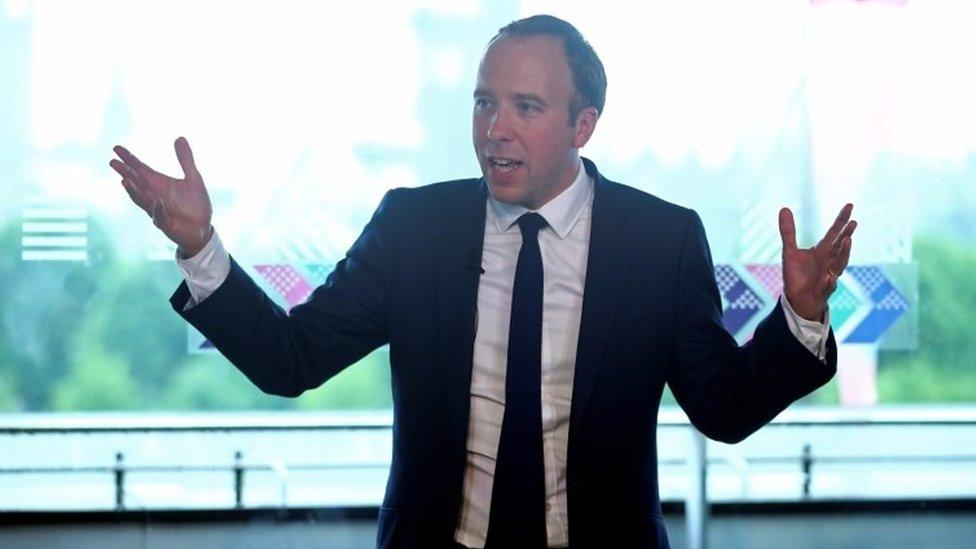Tory leadership hopefuls set out Brexit Irish backstop policy
- Published
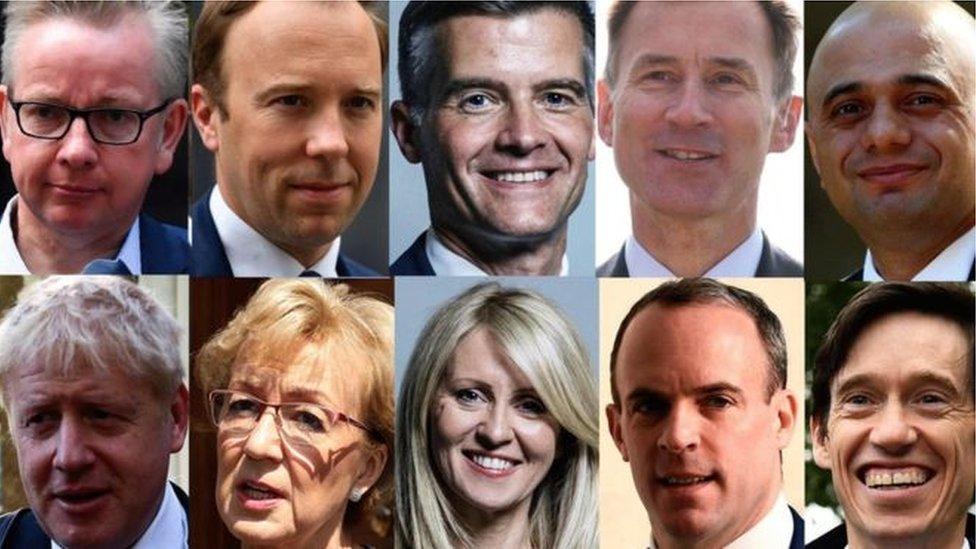
The backstop was the most controversial part of the deal Theresa May negotiated with the EU.
It is a position of last resort to prevent any new checks or controls on the Irish border after Brexit.
The UK and EU would prefer to maintain the border status quo through a comprehensive trade deal.
If such an agreement cannot be reached, or if a technological solution does not emerge, the backstop would come into force.
It would keep the UK in a single customs territory with the EU, and leave Northern Ireland in the EU's single market for goods.
That would mean goods crossing the border would not need to be subject to checks for customs or product standards.
Many Conservative MPs fear the UK could be "trapped" in that arrangement for years, leaving it unable to strike its own trade deals on goods with the rest of the world.
The Democratic Unionist Party (DUP), who prop up the government, also do not want to see Northern Ireland treated differently from the rest of the UK.
Most of the Conservative leadership contenders are proposing changes to the backstop.
The major difficulty with this policy is that the EU say they will not be reopening the withdrawal agreement.

Michael Gove
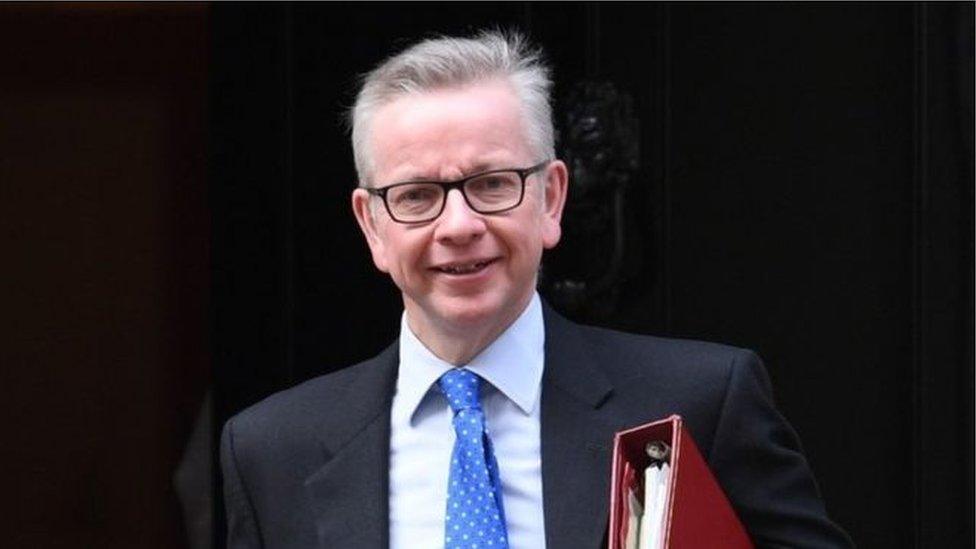
The environment secretary has said he wants to see a "full stop to the backstop".
That would involve a renegotiation with the EU to add what he calls a "clear exit mechanism" from the backstop.
He has also revived the idea of a "Stormont lock", which would mean that a devolved administration could veto any backstop provisions which would lead to Northern Ireland being treated differently from the UK.
He would appoint a dedicated minister to lead the search for technological solutions to the border issue.
Matt Hancock
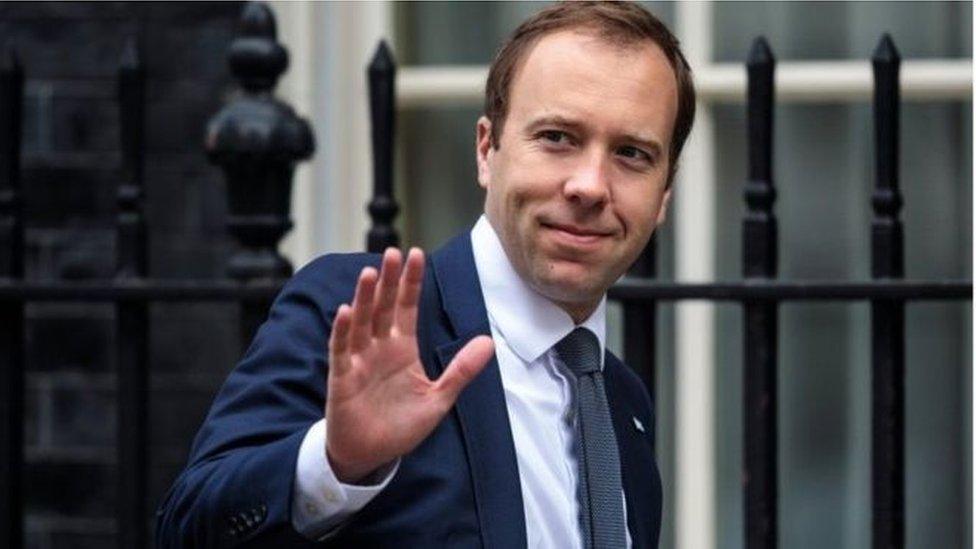
The health secretary has said he would seek a time limit to the backstop.
He has also proposed an "Irish Border Council", which would involve Northern Ireland's political parties, the British and Irish governments and the EU.
Mr Hancock said it would aim to find a way to maintain a soft border and allow the UK to have an independent trade policy.
He said the council would be chaired by an independent figure, using the example of Senator George Mitchell's role in the NI peace process.
He said it would aim to find a "long-term political, administrative and technological solution".
The proposal has a focus on technology, but Mr Hancock said any solution would require the political will and consent of communities on both sides of the border.
Mark Harper
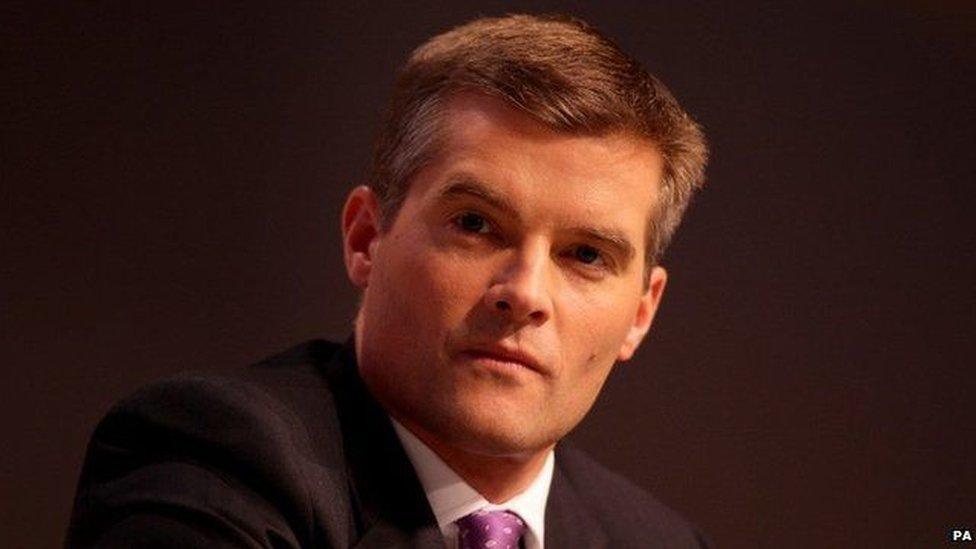
The former chief whip wants the backstop to be removed completely and replaced with the so-called "Malthouse Compromise",
This was a compromise among Conservative MPs, brokered by Housing Minister Kit Malthouse.
It is effectively a free trade deal with "maximum facilitation" to deal with issues at the border.
Maximum facilitation refers to a range of technical and technological solutions aimed at minimising the need for any checks or controls at the border.
Mr Harper said "existing practices and sensible cooperation" would be sufficient to avoid a hardening of the border.
Jeremy Hunt
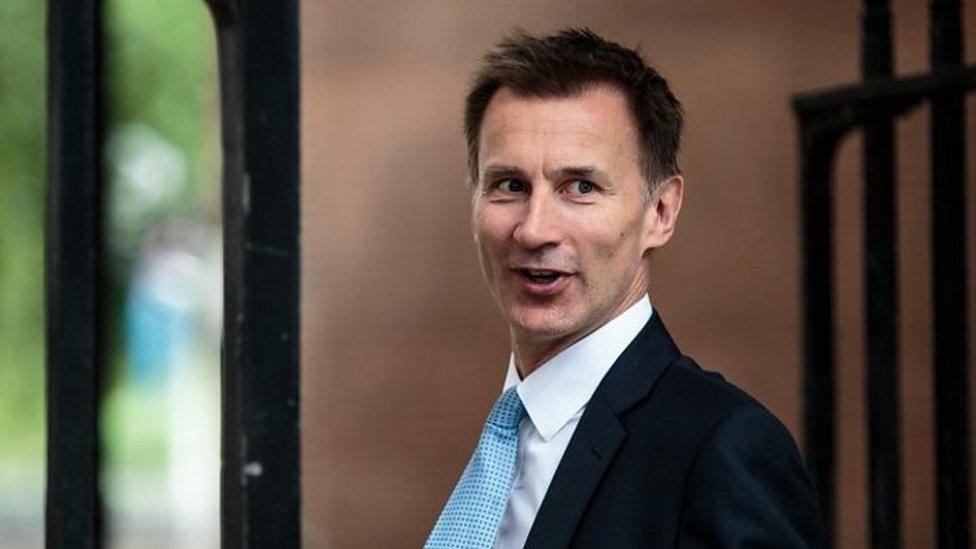
The foreign secretary has said the EU now accepts that the backstop will never be approved by Parliament.
He believes that, with the right approach, the issue can be renegotiated - he takes this view following a recent conversation with the German leader, Angela Merkel.
Like many of the other candidates, Mr Hunt puts his faith in technology.
He told Sky News that a technological solution was "doable but we have to find the structures that reassure people that this is deliverable".
"And we have to find the mechanisms to deal with the situation where we can't agree what technology is capable of," he added.
He has also suggested the DUP could be added to the UK's negotiating team.
Sajid Javid
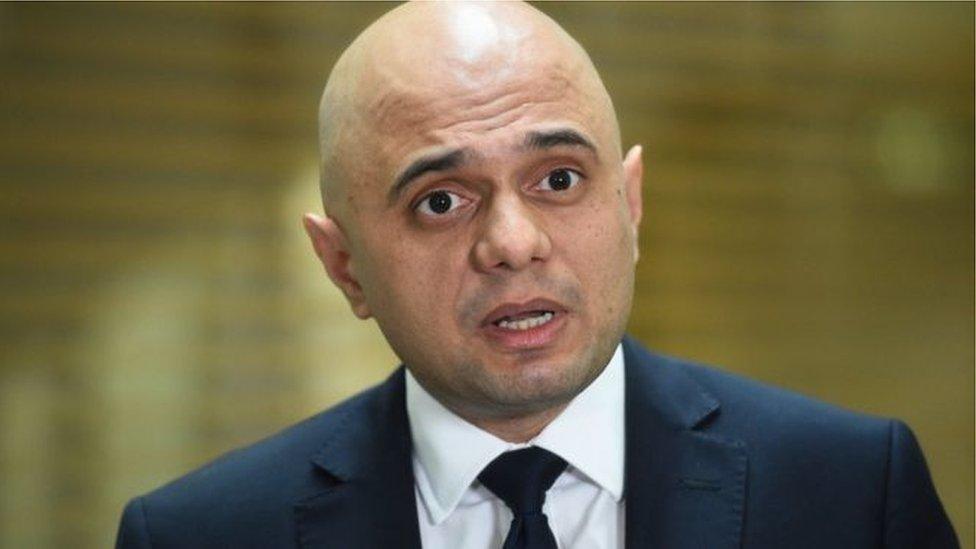
The home secretary is another techno-optimist who believes that technology can keep the border as open as it is now, so the backstop is not needed.
He has talked about "a new digitised" Irish border, which could be "done in a couple of years" and that would not involve any infrastructure on the border.
Mr Javid has said he would make a "grand gesture" to the Irish government by paying for it even if it cost hundreds of millions of pounds.
He acknowledged that for this to work, it would need goodwill on all sides.
However by recently referring to Ireland as "the tail that wags the dog", he got his goodwill building off to a bad start.
Boris Johnson
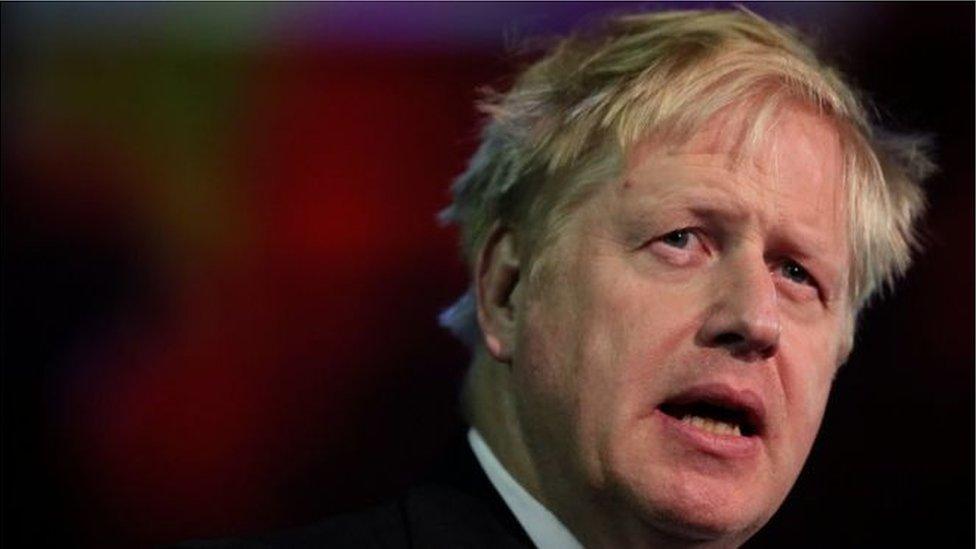
The former foreign secretary has described the backstop as a "monstrosity" that wipes out the UK's sovereignty and contends it is "being used to coerce the UK into becoming a vassal state of Brussels".
He would seek to remove the backstop entirely from the withdrawal agreement.
Mr Johnson has suggested he would only discuss border arrangements in the context of the second phase of Brexit negotiations, which will focus on a trade deal.
He told the Sunday Times that is "logically" where the border should be discussed "and where it should have been all along".
Andrea Leadsom
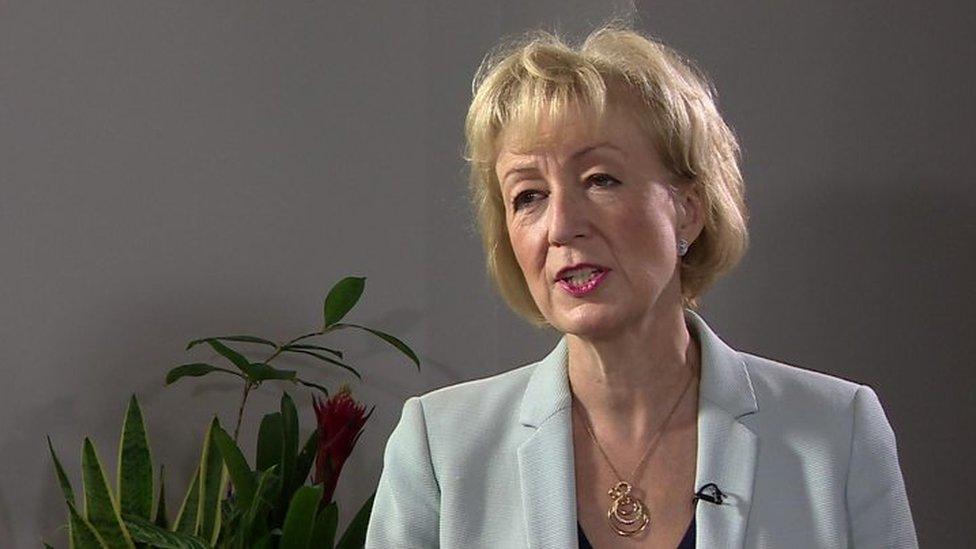
The former leader of the House of Commons is proposing what she calls a "managed exit", rather than a renegotiation of the backstop.
Her three-point plan proposes a basic trade deal, which would again feature technical and technological solutions to reduce border friction.
She has also proposed a UK-EU summit in Belfast in September where EU leaders "will be invited to agree which measures we will all accept, to ensure a properly managed exit".
Esther McVey
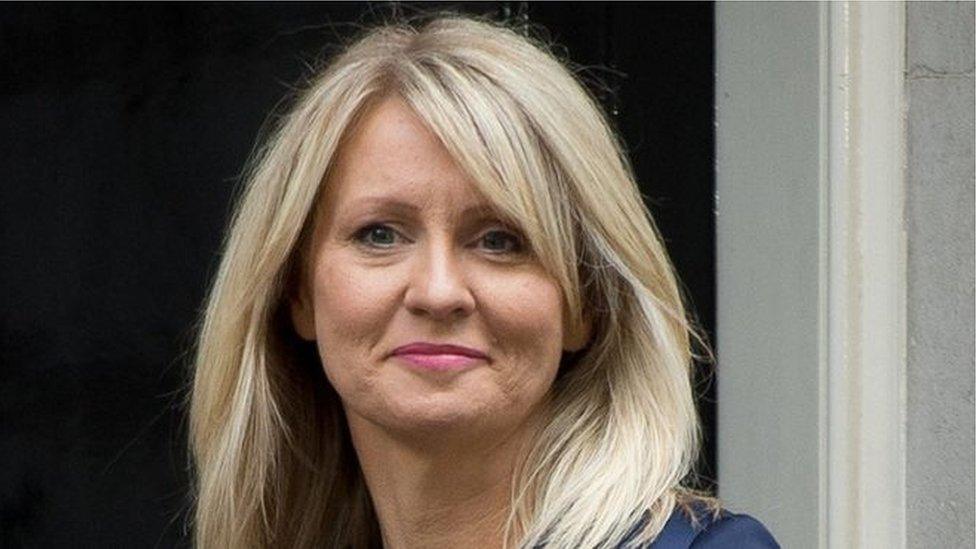
The former work and pensions secretary has said the backstop should never have been agreed to.
Like Andrea Leadsom, Ms McVey does not believe that the EU will renegotiate the backstop.
She said the UK should therefore be prepared to leave without a deal and step up preparations for that eventuality.
Dominic Raab
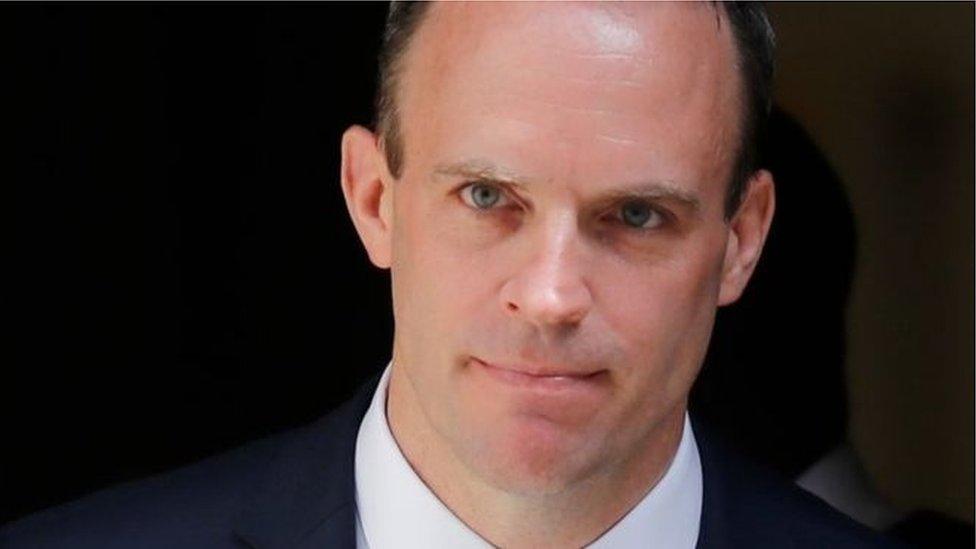
Former Brexit secretary Dominic Raab has said he wants a "a targeted forensic change to the backstop".
However, his idea is really to remove the backstop entirely and replace it with the "Malthouse Compromise" (see above).
Mr Raab has also talked about the need for goodwill to make the technical solutions of the Malthouse Compromise work.
However, he has a strained relationship with the Irish government having accused the taoiseach (Irish prime minister) of leaking a damaging story about him to the Daily Telegraph.
That has been consistently and robustly denied by the Irish government.
Rory Stewart
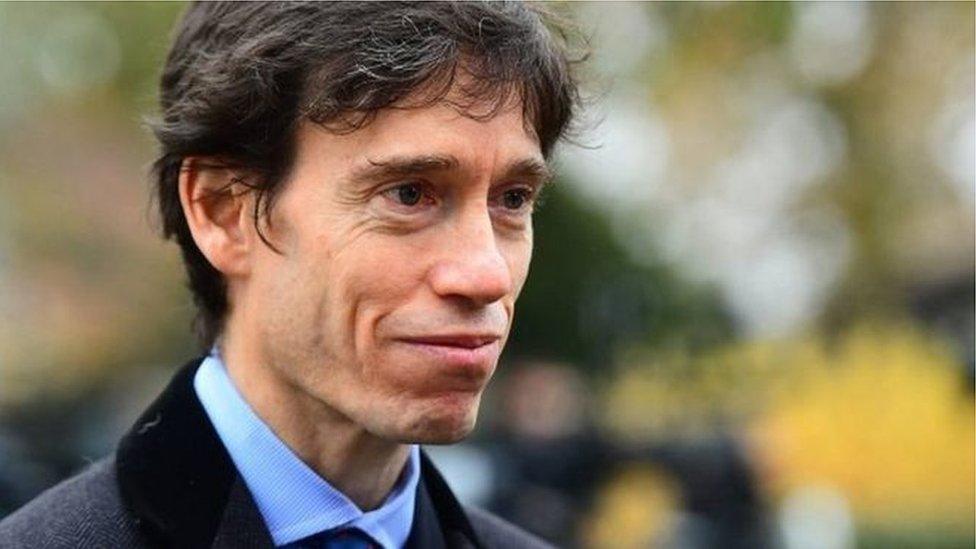
The international development secretary's energetic campaign has taken him to the Irish border - he recorded his thoughts as he crossed between Lifford and Strabane.
He is the only candidate who is proposing to try to get the current deal, backstop included, through Parliament.
He urged the other candidates to "stop pretending that you are going to be able to negotiate some alternative deal with Europe.
"There is literally no evidence at all that Europe will give us a different deal," he said.
He added that it was a pretence that a technological solution would be agreed by Brussels "over the next few months".
What are the EU saying about all this?
Back in April, when EU leaders decided the UK could delay Brexit until the end of October they were clear that they were not going to renegotiate.
The conclusion of their summit stated: "The European Council reiterates that there can be no opening of the withdrawal agreement."
That has been reiterated in recent days by the EU's chief negotiator Michel Barnier.
He said that the current withdrawal agreement is "the only one possible."
Ireland's Europe Minister Helen McEntee summed up her government's position in a tweet.
"The withdrawal agreement will not change. The backstop cannot change.
"Much of what was in the withdrawal agreement was asked for by UK. They were not bystanders in the two years it took to negotiate.
"Bit of realism needed."
- Published10 June 2019
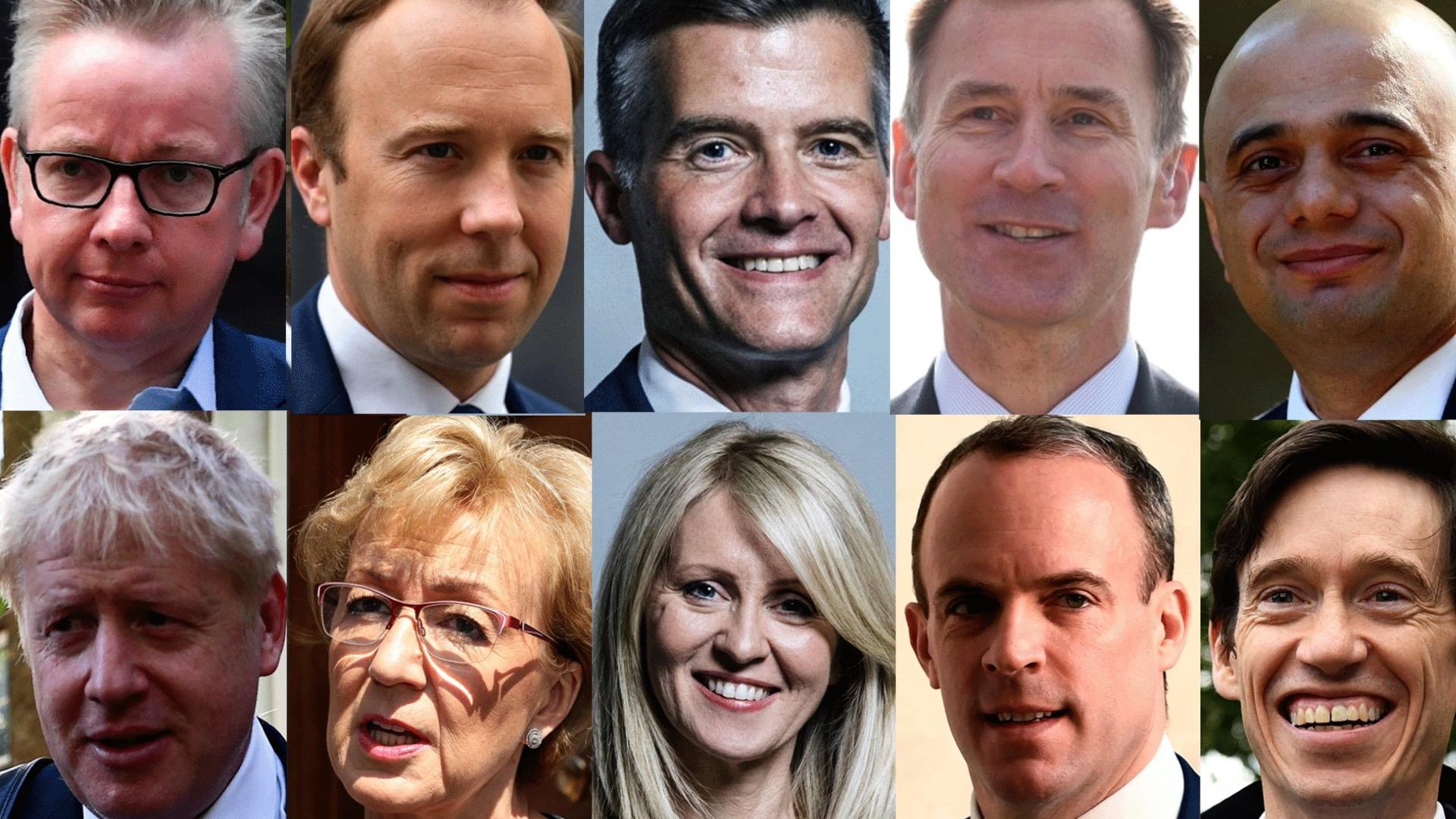
- Published16 October 2019

- Published10 June 2019
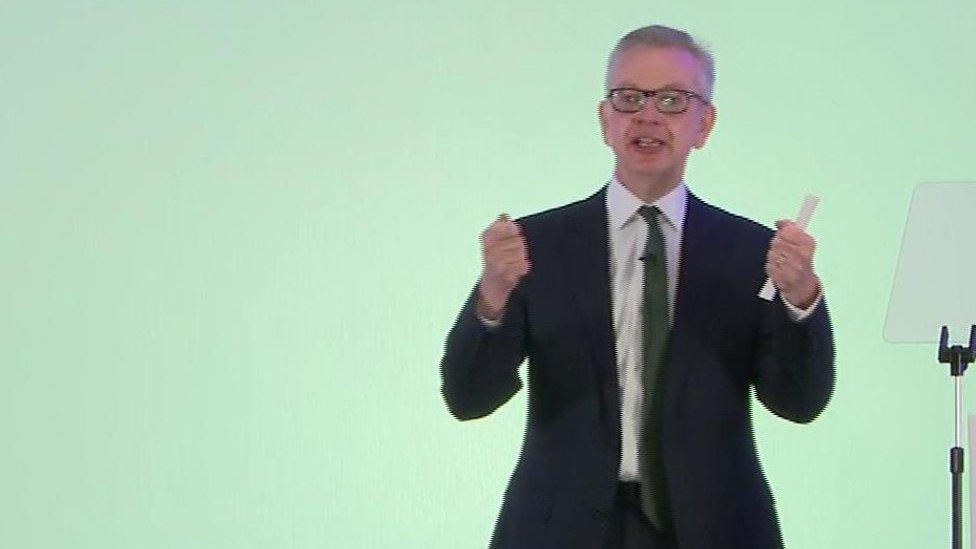
- Published10 June 2019
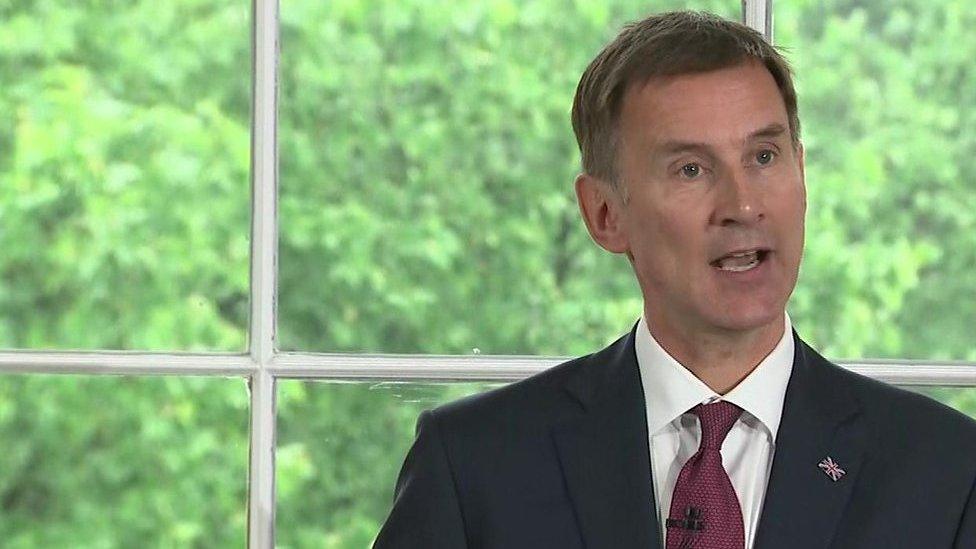
- Published10 June 2019
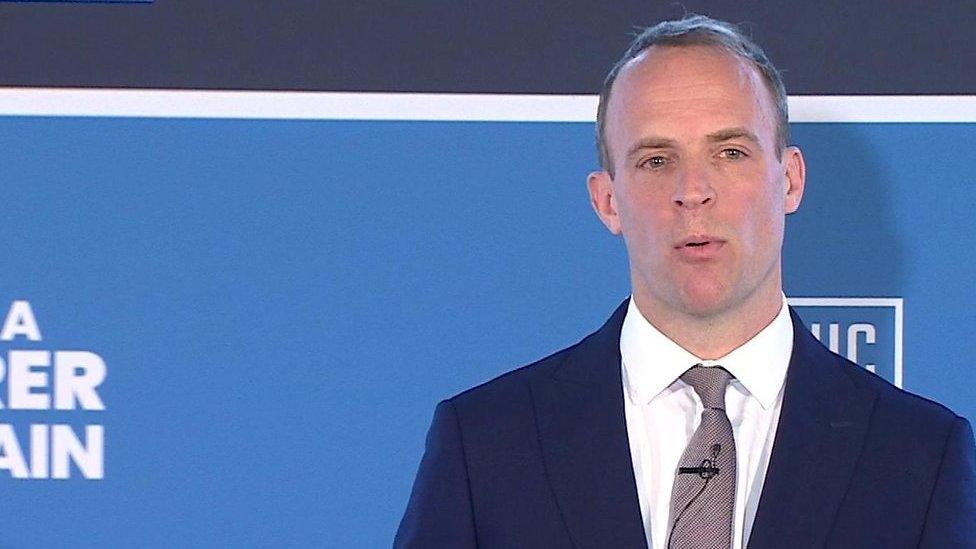
- Published10 June 2019
